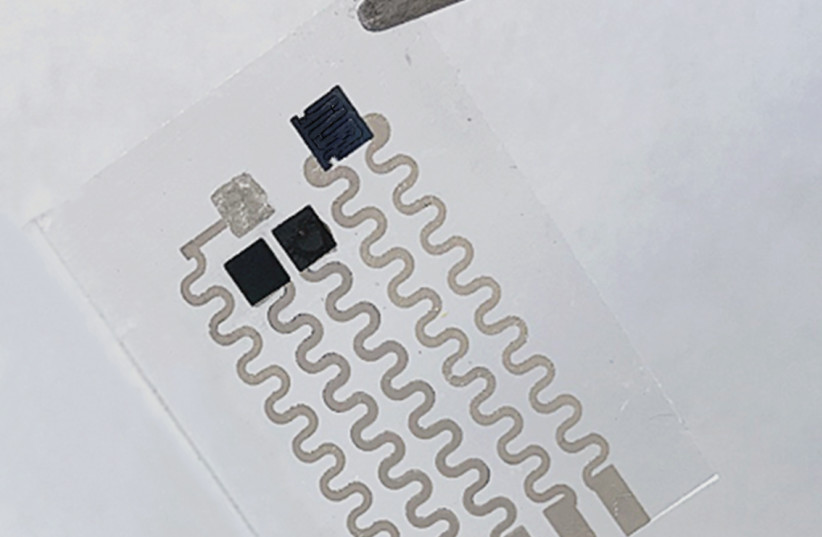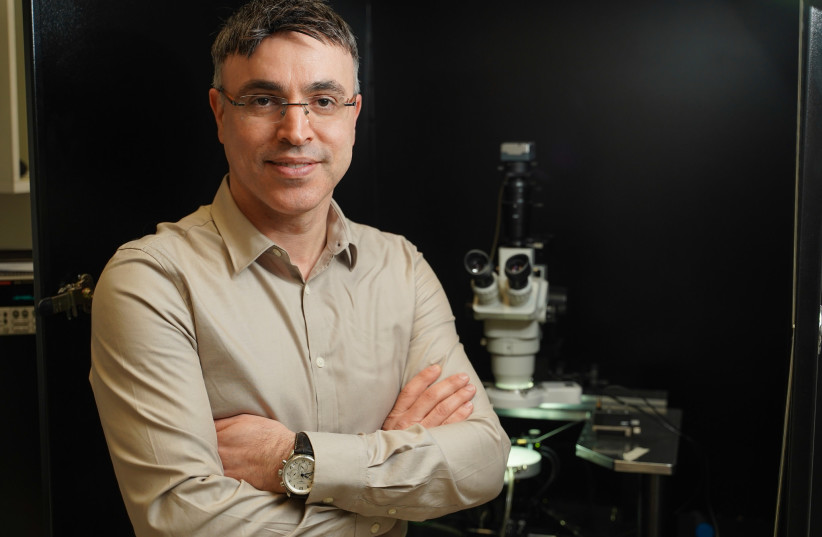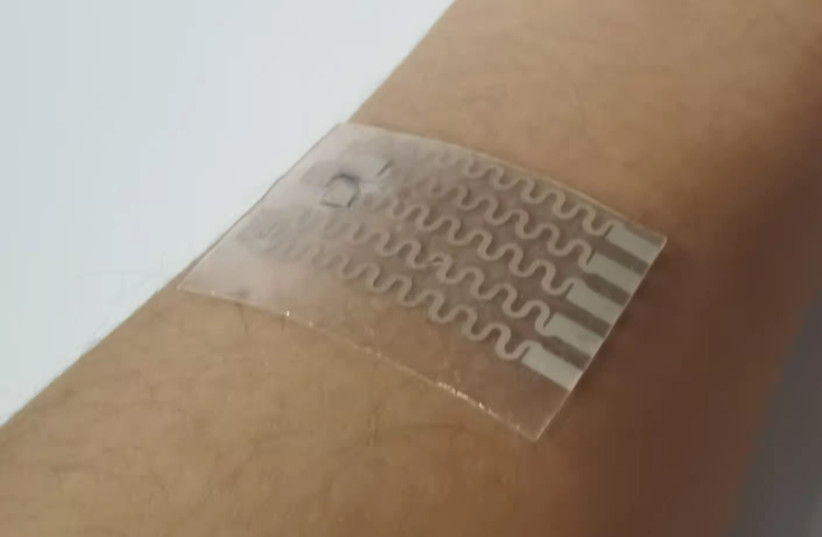Self-suturing bandage in Technion renders medical stitches unnecessary
The Technion team developed a polymeric mesh dressing that contracts the wound edges and allows skin healing - without the string holding it together.
By JERUSALEM POST STAFF, Published:
NOVEMBER 25, 2021

Multifunctional wound dressing (MFWD) sensor invented by the Technion
(photo credit: TECHNION SPOKESPERSON'S OFFICE)
A team of researchers at the Laboratory for Nanomaterial-based
Devices (LNBD) in the Technion say that they have devised a method to
bring the field of medicine – particularly, surgery - a giant leap
forward.
The
staple of any surgeon is an ability to cut, and tie back together. But
stitches often come with a risk of infection, as well as a need for a
second removal procedure if the thread is non-dissolving.
Prof. Hossam Haick and his lab at the Haifa-based Technion Institute of Technology claim that they can now make the old-fashioned suture a thing of the past.
In an article they recently published in Advanced Materials,
the team describes how they created a nanomolecular mesh that
effectively binds the skin within seconds, as well as protects the wound
from further inflammation.
Bones, skin and wounds can fix themselves if given the chance.
Basically, all materials and procedures that connect wounds are there to
help the body heal biologically. When you accidentally slice your hand
chopping vegetables, the go-to solution since ancient Egyptian times has
been to make sutures that bring the edges of the skin closer to help it
create new tissue and reconnect.

PROF Hossam Haick, head of the Laboratory for Nanomaterial-based
Devices and the Dean of Undergraduate Studies at the Technion Institute
of Technology (credit: TECHNION SPOKESPERSON'S OFFICE)
The
Technion team developed a polymeric mesh dressing with sulfur, nitrogen
and cetyltrimethylammonium bromide, which contracts the wound edges and
allows skin healing – without the stitches holding it together.
Wounds held with stitches are often still susceptible to infection, a major complication of any wound or surgery.
The fantastic new nanomaterial device can solve this issue from another perspective as well – using sensors in the bandage to monitor infection.

Photo of the multifunctional wound dressing invented by the Technion (credit: TECHNION SPOKESPERSON'S OFFICE)
“I
was watching a movie on futuristic robotics with my kids late one
night,” the professor said, “and I thought: What if we could really make
self-repairing sensors?”
The
dressing from Haick's lab – based on studies by Muhammad Khatib, an
understudy on his team, and postdoctoral fellow Dr. Ning Tang –
incorporates sensors for pH acidity levels, sugar (glucose) levels and
changes in temperature - all indicators of a possible bacterial invasion
of the tissue.
Upon detecting an infection, the mesh would also have the capacity to release antibiotics directly onto the area.
“It’s
a new approach to wound treatment,” Haick said. “We introduce the
advances of the fourth industrial revolution – smart, interconnected
devices – into the day-to-day treatment of patients.”
Please recommend this page & follow the Sputniks Orbit


No comments:
Post a Comment